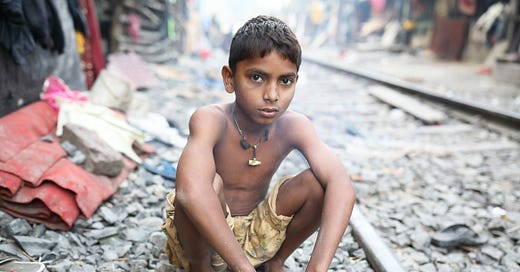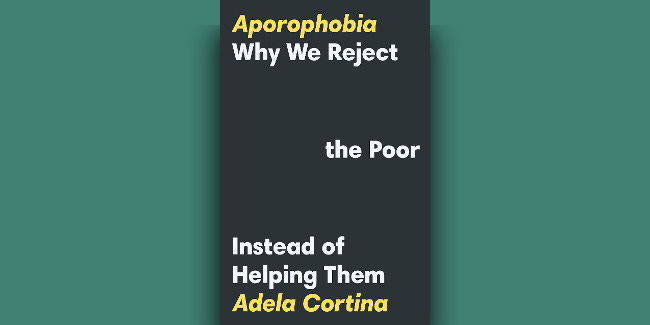Review of Book: "Aporophobia: Why We Reject the Poor Instead of Helping Them," by Adela Cortina, 2017. Princeton, NJ: Princeton University Press. Cloth, 145 pages.
Reviewing a book from 2017? Is it that important? Lots of essential information? Revealing hints? Why so many poor and homeless out there?
So many homeless people. So many poor people. Not everybody living outdoors is both. Why are those folks wandering around so scary? Why are they so threatening?
Maybe it is the non-homeless that are the scary ones.
It happens the author of this book is a professor emerita of ethics and political philosophy. That gives an interesting perspective indeed for talking about the poor and the homeless and the rest of the wanderers.
Cortina paints a broad sweep of a picture here including both the history and politics of what people think of the poor. Cortina speaks to the changes in this country—President Biden welcoming the poor immigrants in—and the ongoing nightmares—such as the Haitians who were chased by guards on horseback.
All is not well in the land of the poor, which Cortina explains, is pretty much every land. The notion that immigrants bring lots of problems but certainly nothing of value to offer is an important theme in the book.
Since the days of the “undeserving poor” and the various battles against poverty (none have really succeeded in conquering it) persons who find themselves trapped in poverty have been in the news. Every day, we hear about what the poor are doing, what the homeless are up to, and what the people out there without jobs and money are (supposedly) doing to destroy our nation.
Currently, just within Chicago, we have over 69,000 (native) homeless, over 20,000 new migrants who are homeless, and all the numbers are up, up, up.
There are over 16,000 homeless students who attend Chicago Public Schools. There are well over 50,000 homeless children in Illinois.
Poor people. They are everywhere… wandering about and scaring others. No matter how many times you give them money and sandwiches and prayers… they are back the next day, it seems.
The topic comes up almost every day. Feelings about this big part of the world population are strong in the media and the sources and causes of the views and opinions about this burgeoning sector of the US (and world) population….
This book provides an interesting outline of where our fear of the poor comes from… a clear understanding of the Greek root words used to come up with a term for this fear, and an ethical framework for understanding all of this.
Now, it is up to the reader, the educator, the social worker, and the taxpayer to make sense of the outline provided here. Everyone must develop a better understanding of oneself as we venture out into the street to help the poor.
The book seems to be timeless, after all.
Unfortunately.





